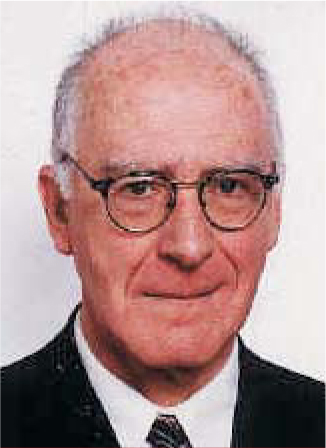Helping to rebuild Croatia
DOI: 10.1063/1.3206087
In 1991 six republics of Yugoslavia fell into chaos. Croatia, Bosnia and Herzegovina, Serbia, Montenegro, and later the Serbian province of Kosovo saw massive population displacements and an estimated collective death toll of more than 300 000. Vast swaths of infrastructure were devastated. It was the worst crisis in Europe since World War II.
Central to the rebuilding of science and education in Croatia is Ivo Šlaus. “I was interested in physics at high school,” he says, “particularly on the structure of matter.” In 1958 at the University of Zagreb, Šlaus earned a PhD in nuclear physics based on research he did while on a UNESCO scholarship at the University of Rochester in New York. That trip, he says, “led to a 40-year association with a number of nuclear and particle physics centers such as UCLA; Duke, Georgetown, and Washington universities; TRIUMF in Vancouver, Canada; the Naval Research Laboratory; and the national labs at Argonne, Brookhaven, and Los Alamos.”
Šlaus’s other interest is politics. “While physics and science in general have a well-defined domain,” he says, “politics permeates everything, particularly with R&D and education.” Šlaus was a founder of the European Physical Society. In 1992, when Croatia was recognized as an independent country, Šlaus was appointed the foreign secretary of the Croatian Academy of Sciences and Arts, and promoted Croatia’s membership in international scientific organizations such as the International Council for Science. He helped found the All European Academies and the global InterAcademy Panel.
A call to serve
“In 1996, together with a colleague, Ivan Supek, I founded the Croatian Movement for Democracy and Social Justice,” says Šlaus. That led in 1998 to his being asked to chair the social democratic parties council in Zagreb and to run in the 2000 parliamentary elections. Between 2000 and 2003, Šlaus was Zagreb’s Member of Parliament; he worked on the foreign affairs committee and chaired the subcommittee on science, technology, and higher education. “Having a background in physics helped tremendously,” he says. “Physicists think in terms of numbers, and in politics nearly everything comes down to numbers. Moreover, they have one additional advantage: Physicists think rationally based on axioms, but are always ready to challenge any axiom and do it constantly.”
Šlaus says that his main push while in Parliament was to build education and research links with neighboring countries and the European Union. “I tried to introduce several reforms, such as increasing R&D investment [and] the number of university students and professors, and to get students to complete their degrees in a given time frame. Unfortunately, most of these attempts failed,” he says. “Academic institutions can be extremely conservative in their operating structure—as US President Woodrow Wilson said, ‘It is easier to move the cemetery than to change any curriculum.’” But, he adds, “I was successful in helping to establish new universities in Zadar and Dubrovnik.”
The hardest part was trying to maintain his physics activities. “There were 15 PhD scientists in the Croatian parliament,” he says, “but the number of practicing scientists was very low…. Politics is enormously time consuming and intensive.” Nevertheless, adds Šlaus, while in Parliament he continued to teach in Croatia and the US two to three months every year, and published 10 scientific papers.
A broader interest
In recent years, Šlaus’s political interest has focused more on global issues, particularly on weapons of mass destruction and democratic stability: “I joined Pugwash [an organization of academics and ex-officials that works on reducing WMD] in 1963, but I became really active in 1993 when I became more interested in dealing with the [unstable] political situation in Croatia.”
Šlaus is now on the Pugwash council, which has been a mediator in a series of back-channel talks between the US and Iranian governments. “WMDs are not a large concern of the public compared to other issues,” he says, “despite the risk of annihilation.”
He has been involved in bringing together scientists from NATO and nonNATO countries to work on scientific research and on counterterrorism; Croatia officially became a member of NATO on 1 April of this year. “NATO’s third role—science for peace—is the greatest achievement of any political military alliance I know of,” he says. “However, it is still not adequately stressed [by NATO], and financial allocations are smaller than what they should be.”
But Šlaus thinks education is still the key to progress and that in spite of the frustrations, he’ll remain active in politics for a while yet. “Most of the threats and dangers facing the contemporary world can be neither prevented nor reduced by military power and deterrence. The 21st century demands a knowledge-based society,” says Šlaus. And physicists could help provide the solution. “They have a unique broader aspect based on their education, to think outside the box,” he says. “And most of the solutions facing the world at the moment cannot be fixed by traditional methods.”

Šlaus

More about the authors
Paul Guinnessy, pguinnes@aip.org





